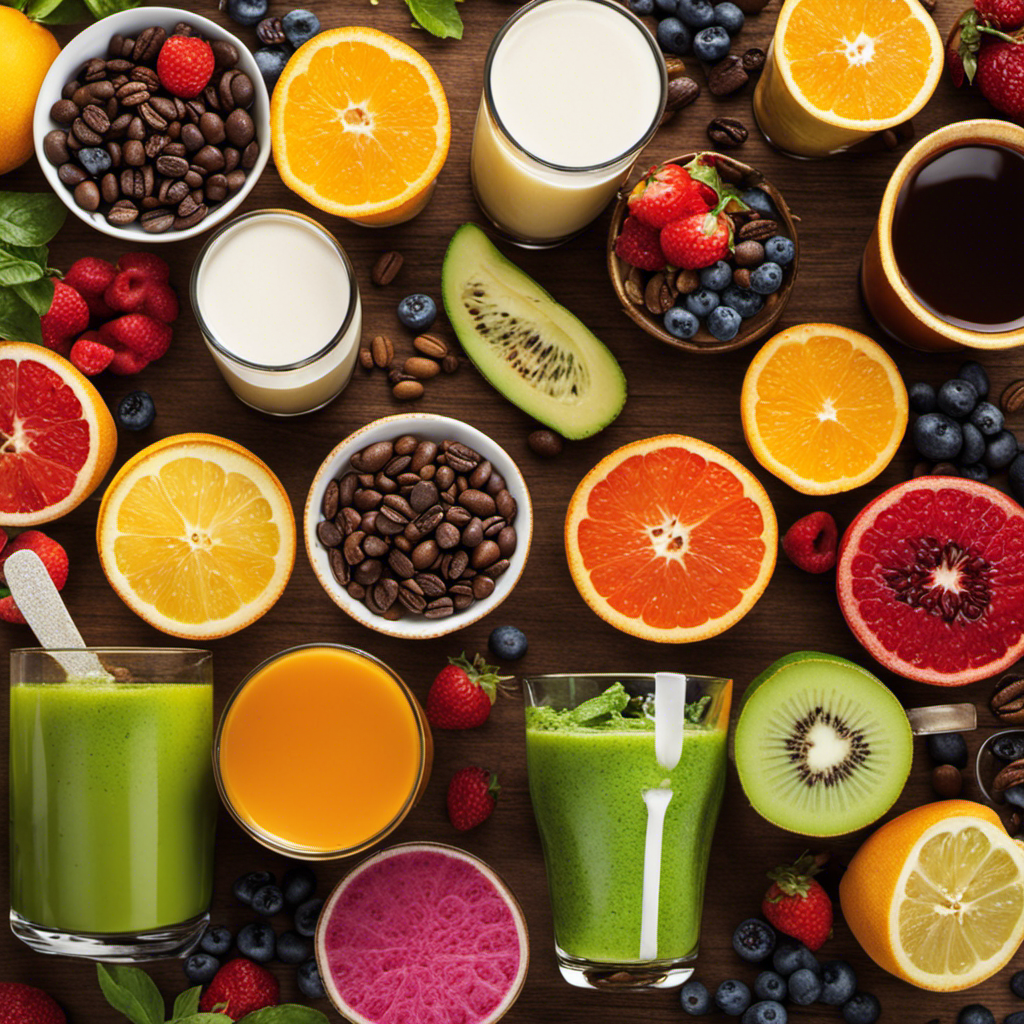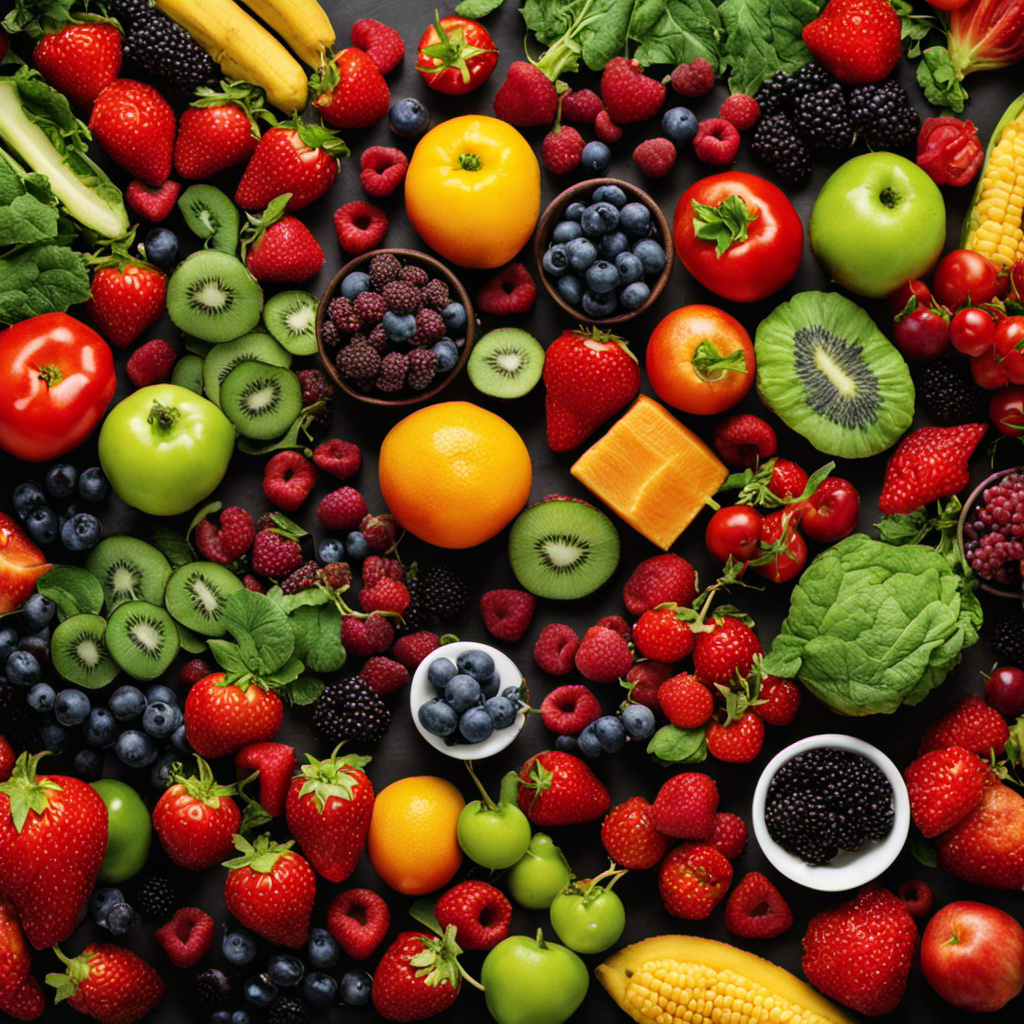Beginners Guides
The Dangers of Drinking Coffee in College

As a college student, I’ve always relied on coffee to keep me awake and focused. But the truth is, the dangers of drinking coffee in college are more significant than I initially realized.
From negative effects on sleep quality to an increased risk of heart problems, it’s crucial to be aware of the potential harm. Moreover, coffee can have a negative impact on mental health and even lead to caffeine addiction.
Additionally, it may interfere with nutrient absorption. Let’s explore these risks further and make informed choices about our caffeine consumption.
Key Takeaways
- Drinking coffee late at night can negatively impact sleep quality and impair cognitive function, which can have a detrimental effect on academic performance in college.
- Excessive caffeine consumption can increase the risk of heart problems and negatively affect cardiovascular health, highlighting the importance of prioritizing cardiovascular well-being.
- Consuming excessive amounts of caffeine can have a negative impact on mental health, exacerbating anxiety, disrupting sleep patterns, and impairing cognitive function, all of which can hinder academic performance.
- Excessive caffeine consumption can potentially lead to addiction and withdrawal symptoms, which can further impact academic performance. Finding a balance and avoiding dependence on caffeine is crucial.
Negative Effects on Sleep Quality
Drinking coffee late at night affects my sleep quality, leaving me feeling tired and groggy in the morning. It may seem like a harmless habit, but it can have negative consequences on our cognitive function and increase the risk of accidents.
When we don’t get enough sleep due to coffee consumption, our cognitive abilities suffer. Studies have shown that lack of sleep impairs decision-making, attention, and memory recall. This can be particularly detrimental for college students who need to be alert and focused during lectures and exams.
Additionally, sleep deprivation caused by late-night coffee consumption can lead to an increased risk of accidents. Sleepiness slows down reaction times and impairs judgment, making us more prone to accidents, whether it’s on the road or in everyday activities.
It’s important to be mindful of the timing of our coffee intake to prioritize a good night’s sleep and avoid these negative effects on our cognitive function and safety.
Increased Risk of Heart Problems
I am concerned about the potential for an increased risk of heart problems associated with excessive caffeine consumption. Studies have shown that consuming large amounts of caffeine, such as what can be found in energy drinks or multiple cups of coffee, can have negative effects on cardiovascular health. Caffeine can increase blood pressure and heart rate, which may put strain on the heart and increase the risk of heart disease.
It’s important to be mindful of our caffeine intake and to consume it in moderation. While moderate caffeine consumption is generally safe for most individuals, excessive amounts can have detrimental effects on our heart health. It’s crucial to prioritize our cardiovascular well-being by making informed choices about our caffeine consumption.
This increased heart disease risk isn’t the only concern when it comes to excessive caffeine consumption. The negative impact on mental health is another important aspect to consider.
Negative Impact on Mental Health
Excessive caffeine consumption can have a detrimental effect on one’s mental health, leading to increased anxiety and disrupted sleep patterns. It’s important to be aware of the impact that caffeine can have on our overall well-being, especially when it comes to academic performance and managing stress.
Here are three key ways that excessive caffeine consumption can negatively affect our mental health:
-
Increased anxiety: Caffeine stimulates the nervous system, which can lead to heightened feelings of anxiety and restlessness. This can make it difficult to focus and concentrate on academic tasks.
-
Disrupted sleep patterns: Caffeine can interfere with our ability to fall asleep and stay asleep, leading to sleep disturbances and fatigue. Lack of quality sleep can impair cognitive function and hinder academic performance.
-
Relationship with stress: While caffeine may temporarily boost mood and alertness, it can also exacerbate feelings of stress and tension. This can create a cycle where caffeine is used as a coping mechanism, further impacting mental health.
Understanding the potential negative effects of excessive caffeine consumption is essential for maintaining optimal mental well-being and academic success. However, it’s also important to recognize the potential for caffeine addiction, which will be discussed in the next section.
Potential for Caffeine Addiction
As a college student, I am aware of the potential for addiction to caffeine. It is no secret that many of us rely on coffee and energy drinks to stay awake and focused during those long study sessions. However, it is important to understand the potential dangers of consuming too much caffeine.
Caffeine withdrawal is a real concern for those who become dependent on it. Symptoms such as headaches, fatigue, irritability, and difficulty concentrating can occur when someone tries to quit or reduce their caffeine intake. This can have a significant impact on academic performance, making it difficult to stay focused and perform well in classes.
To illustrate the potential effects of caffeine withdrawal on academic performance, consider the following table:
| Caffeine Consumption | Academic Performance |
|---|---|
| High | Excellent |
| Moderate | Good |
| Low | Average |
| None | Poor |
It is clear that excessive caffeine consumption can have a positive impact on academic performance, but it is important to find a balance and avoid becoming dependent on it.
Interference With Nutrient Absorption
There is a potential risk of nutrient deficiencies if one consumes excessive amounts of caffeine and doesn’t maintain a balanced diet. While caffeine is commonly found in coffee and can provide a temporary energy boost, it can also interfere with the absorption of certain nutrients in the body. This can have a negative impact on physical performance and overall health.
Here are three ways excessive caffeine consumption can lead to nutrient deficiencies:
-
Calcium: Caffeine can increase the excretion of calcium through urine, leading to decreased calcium levels in the body. This can weaken bones and increase the risk of osteoporosis.
-
Iron: Caffeine can inhibit the absorption of iron from plant-based sources, such as spinach and beans. Iron deficiency can result in fatigue, weakness, and impaired cognitive function.
-
Vitamin D: Caffeine can interfere with the activation of vitamin D, which is crucial for maintaining healthy bones and immune function.
To avoid potential nutrient deficiencies, it’s important to consume caffeine in moderation and ensure a well-balanced diet that includes a variety of nutrient-rich foods.
Frequently Asked Questions
How Does Drinking Coffee in College Affect Academic Performance?
Drinking coffee in college can impact academic performance. The impact of caffeine on sleep quality and the correlation between coffee consumption and stress levels can affect concentration, energy levels, and overall productivity.
Can Drinking Coffee in College Lead to Weight Gain?
Drinking coffee in college can lead to weight gain due to increased calorie intake and decreased physical activity. Additionally, caffeine can disrupt sleep patterns, leading to sleep deprivation, which is also associated with weight gain.
Is It Safe to Mix Coffee With Alcohol in College?
Mixing caffeine and alcohol in college can have potential health risks. It can affect sleep quality and decision-making abilities. There is also a risk of addiction. It is important to be aware of these dangers.
Does Drinking Coffee in College Increase the Risk of Developing Anxiety or Panic Disorders?
Drinking coffee in college can potentially increase the risk of developing anxiety or panic disorders. It’s important to be mindful of our coffee consumption and prioritize our mental health.
Can Drinking Coffee in College Affect Hormonal Balance and Fertility in the Long Term?
Drinking coffee in college can have long-term impacts on hormonal regulation and fertility. It is important to consider the potential risks and make informed choices about coffee consumption to maintain optimal long-term health.
Conclusion
In conclusion, while coffee can provide a much-needed energy boost for college students, it’s important to be aware of its potential dangers.
One interesting statistic to note is that approximately 60% of college students report experiencing sleep problems due to excessive coffee consumption. This highlights the negative impact coffee can have on sleep quality, which is crucial for overall health and academic performance.
It’s essential for students to practice moderation and prioritize their well-being when it comes to consuming caffeinated beverages.
In the vast and diverse world of coffee, coffee alternatives, and tea, Olivia has found her calling. As an author and a dedicated coffee and tea aficionado, her work for Cappuccino Oracle reflects her profound love and understanding of the intricate complexities found within these beverages. Olivia’s passion for the subject serves as both a catalyst for her creativity and a connection point with her audience.
Olivia’s appreciation for coffee, coffee alternatives, and tea blossomed at an early age. She discovered that these beverages invigorated her senses and stimulated her creative spirit. From the nuanced flavors of single-origin roasts to the captivating narratives intertwined with coffee, coffee alternatives, and tea trade and culture, Olivia found an unlimited source of inspiration in her daily cup.
Her love for these beverages and her talent for storytelling eventually converged at Cappuccino Oracle. As an author, Olivia’s mission is to illuminate the intricate tapestry that makes up the world of coffee, coffee alternatives, and tea. Her articles span a diverse range of topics, encompassing everything from the unique flavors of different brews to the sociocultural history intertwined with their cultivation and consumption.
Beginners Guides
How Does The Caffeine Content In Tea And Energy Drinks Affect The Body Differently

The adage ‘You are what you drink’ aptly applies, especially regarding caffeine. This natural stimulant present in tea and energy drinks significantly influences our physiology. However, have you considered the varying effects of caffeine levels in these drinks on our body?
In this article, we will delve into the fascinating world of caffeine and explore its effects on the body.
Firstly, we will examine the caffeine content in tea and energy drinks, comparing the two and highlighting any differences. We will then explore how caffeine is absorbed and metabolized by the body, shedding light on why we may experience varying effects.
From there, we will delve into the effects of caffeine on the brain and nervous system, as well as its influence on heart health. Additionally, we will explore the impact of caffeine on our sleep patterns and discuss personal factors that can affect our sensitivity to this powerful substance.
So grab a cup of tea or energy drink, and let’s dive into the stimulating world of caffeine.
Key Takeaways
- The caffeine content in tea and energy drinks can have different effects on the body.
- Tea typically contains lower levels of caffeine compared to energy drinks, which may result in milder stimulant effects.
- Energy drinks, with their higher caffeine content, may enhance exercise performance and reduce perceived exertion.
- Tea, being lower in caffeine, may have less impact on sleep patterns compared to energy drinks, which can disrupt sleep quality and duration.
Understanding Caffeine’s Effects on the Body
Understanding how caffeine affects the body differently in tea and energy drinks is crucial for comprehending the intricate ways in which these beverages impact our overall well-being.
Caffeine is a stimulant that affects the central nervous system, increasing mental alertness and reducing fatigue. When consumed before exercise, caffeine can improve performance by enhancing endurance, reducing perceived exertion, and increasing fat oxidation. Studies have shown that caffeine can also improve cognitive function, including attention, reaction time, and memory.
However, the effects of caffeine can vary depending on the source. Tea contains lower levels of caffeine compared to energy drinks, but it also contains other compounds like L-theanine, which may have calming effects.
Transitioning into the subsequent section about the caffeine content in tea, it is important to understand how these additional compounds in tea may influence the body differently.
The Caffeine Content in Tea
To truly grasp the impact, imagine how that invigorating cup of tea you enjoy every morning sends a jolt of energy coursing through your veins, making you feel more alive than ever. When it comes to caffeine content, tea usually contains less caffeine than coffee, but the exact amount can vary depending on the type of tea.
Here are three examples:
- Green tea: Contains around 20-45 mg of caffeine per 8-ounce serving.
- Black tea: Typically has 40-70 mg of caffeine per 8-ounce serving.
- Herbal tea: Usually caffeine-free, but some varieties like yerba mate may contain small amounts.
Knowing the caffeine levels in different types of tea can help you make informed choices about your daily caffeine intake.
Now, let’s delve into the caffeine content in energy drinks.
The Caffeine Content in Energy Drinks
Imagine the electrifying surge of energy that rushes through you with every sip of those fizzy, vibrant drinks you can’t resist. Energy drinks are known for their high caffeine content, which is one of the main ingredients that gives you that instant boost.
In fact, energy drinks typically contain much higher levels of caffeine compared to tea. While a cup of tea usually contains around 30-50 milligrams of caffeine, energy drinks can have anywhere from 80 to 300 milligrams per serving.
Such high levels of caffeine in energy drinks can potentially lead to caffeine overdose if consumed excessively. It is important to be mindful of your caffeine intake and not exceed the recommended limits.
Now, let’s delve into the absorption and metabolism of caffeine, and how it affects our bodies.
Absorption and Metabolism of Caffeine
The electrifying surge of energy you feel after consuming energy drinks is due to the rapid absorption and metabolism of caffeine in your body.
When you drink an energy drink, the caffeine is quickly absorbed into your bloodstream through the lining of your stomach and small intestine. From there, it is transported to your liver, where it undergoes various metabolic pathways. One of these pathways involves the enzyme cytochrome P450 1A2, which breaks down caffeine into three primary metabolites: paraxanthine, theobromine, and theophylline.
Each of these metabolites has its own effects on the body, contributing to the overall physiological response to caffeine. The absorption rate and metabolism of caffeine can vary from person to person, depending on factors such as age, genetics, and liver function.
Understanding how caffeine is absorbed and metabolized is crucial in understanding its effects on the brain and nervous system.
Effects of Caffeine on the Brain and Nervous System
Get ready to experience a surge of energy as caffeine zips through your bloodstream, activating your brain and nervous system. Caffeine has profound effects on memory and cognitive function, enhancing alertness and improving attention span. Studies have shown that it can enhance short-term memory and improve overall cognitive performance. However, excessive caffeine consumption may lead to anxiety and restlessness, as it stimulates the release of adrenaline, a hormone that triggers the body’s "fight or flight" response. In addition, caffeine can also affect mood by increasing dopamine levels, which can improve feelings of well-being and happiness. Nevertheless, it’s important to note that individual responses to caffeine vary, and excessive consumption can lead to negative effects such as jitteriness and insomnia. Transitioning into the subsequent section about the ‘impact on heart health’, caffeine not only affects the brain, but also has implications for cardiovascular health.
Impact on Heart Health
When it comes to the impact of caffeine on heart health, it’s important to consider its effect on heart rate and blood pressure. Caffeine has been shown to temporarily increase both heart rate and blood pressure, which can be concerning for individuals with pre-existing cardiovascular conditions.
Additionally, long-term consumption of caffeine has been associated with an increased risk of cardiovascular issues, such as heart disease and hypertension. These findings highlight the need for moderation and awareness when it comes to caffeine intake and its potential impact on our heart health.
Caffeine’s Effect on Heart Rate and Blood Pressure
Contrarily, sipping on a cup of tea or chugging an energy drink can have contrasting effects on your heart rate and blood pressure. While both tea and energy drinks contain caffeine, their effects on the cardiovascular system differ. Here are five key points to consider:
Tea has a moderate amount of caffeine, which can slightly increase heart rate and blood pressure. However, these effects are usually short-lived and not significant enough to cause concern.
Energy drinks, on the other hand, often contain high levels of caffeine, which can lead to a more pronounced increase in heart rate and blood pressure. This can be especially problematic for individuals with underlying heart conditions.
Caffeine’s impact on exercise performance varies. Some studies suggest that moderate caffeine consumption can enhance endurance and performance, while excessive intake may lead to negative effects.
Tea is a hydrating beverage, contributing to overall hydration levels. Energy drinks, due to their caffeine content, can have a diuretic effect, potentially increasing the risk of dehydration.
Considering the long-term effects on cardiovascular health, excessive consumption of energy drinks, with their high caffeine content and added ingredients, may pose a greater risk compared to moderate tea consumption.
With these considerations in mind, let’s explore the long-term effects on cardiovascular health.
Long-Term Effects on Cardiovascular Health
The long-term impact of regular consumption of caffeine-containing beverages on cardiovascular health is worth exploring. Research suggests that excessive intake of caffeine can have adverse effects on the cardiovascular system. Studies have shown that long-term consumption of high doses of caffeine can lead to increased risk of cardiovascular diseases such as hypertension, heart rhythm disorders, and even heart attacks. Additionally, caffeine has been found to have negative effects on cognitive function in the long term. It can impair memory, attention, and overall cognitive performance. On the other hand, caffeine has been shown to have a positive impact on exercise performance. It can enhance endurance, reduce perceived exertion, and improve overall athletic performance. These findings highlight the importance of moderation when consuming caffeine-containing beverages for long-term cardiovascular health and cognitive function. Moving on to the next section, let’s explore caffeine’s influence on sleep patterns.
Caffeine’s Influence on Sleep Patterns
Caffeine’s impact on sleep patterns can disrupt the body’s natural rhythm and lead to restless nights. Research shows that consuming caffeine, whether from tea or energy drinks, can affect the quality and quantity of sleep.
Caffeine’s influence on cognitive function is well-documented, with studies suggesting that it can improve alertness and concentration. However, when it comes to sleep, caffeine acts as a stimulant that can delay the onset of sleep and reduce overall sleep duration. This can have significant implications on athletic performance, as sleep is crucial for recovery and optimal physical functioning.
It’s important to note that individual sensitivity to caffeine varies, with some people being more affected by its sleep-disrupting effects than others. Transitioning into the next section, personal factors and sensitivity to caffeine play a role in determining how individuals respond to its effects without needing to take a step.
Personal Factors and Sensitivity to Caffeine
When it comes to caffeine, everyone is different in terms of their tolerance and sensitivity. Some people may be able to handle large amounts of caffeine without feeling any negative effects, while others may be more sensitive and experience jitters, anxiety, or trouble sleeping even with small amounts.
These individual differences in caffeine sensitivity can be influenced by various factors, including genetics. Research has shown that certain genetic variations can affect how our bodies process and metabolize caffeine, which can ultimately impact our response to it.
Individual Tolerance and Sensitivity
Feeling tired? Did you know that your individual tolerance and sensitivity can determine how caffeine affects your body differently in tea and energy drinks? Everyone has a unique response to caffeine based on their individual tolerance and sensitivity levels. Some people may be more sensitive to caffeine and experience its effects more strongly, while others may have a higher tolerance and not feel the same impact. Factors such as age, weight, metabolism, and overall health can influence individual tolerance and sensitivity. Understanding your own caffeine tolerance can help you make informed decisions about consuming tea or energy drinks.
In the next section, we’ll explore how genetic variations in caffeine processing can also play a role in how our bodies react to caffeine.
Genetic Variations in Caffeine Processing
Genetic variations can play a role in how our bodies react to caffeine, but how exactly do these variations impact our response? Well, when it comes to caffeine metabolism, certain genetic variations can affect how quickly or slowly our bodies break down and eliminate caffeine. This can ultimately influence our sensitivity to caffeine and how it affects us.
One key genetic variation that has been studied is in the gene CYP1A2, which is involved in caffeine metabolism. People with certain variations in this gene may metabolize caffeine more slowly, leading to higher levels of caffeine in their system and potentially increased sensitivity to its effects. On the other hand, individuals with faster caffeine metabolism may experience a reduced sensitivity to caffeine.
To illustrate the potential impact of genetic variations on caffeine metabolism, consider the following table:
| Genotype | Caffeine Metabolism Speed | Caffeine Sensitivity |
|---|---|---|
| Slow metabolizer | Slow | Increased |
| Fast metabolizer | Fast | Reduced |
This table demonstrates the potential relationship between genetic variations in caffeine metabolism, caffeine sensitivity, and the speed at which caffeine is broken down in the body. While genetic variations are just one piece of the puzzle, they can contribute to individual differences in how caffeine affects us.
Frequently Asked Questions
Can caffeine in tea and energy drinks cause dehydration?
Yes, caffeine in tea and energy drinks can cause dehydration. It acts as a diuretic, increasing urine production. This can lead to fluid loss and potentially impact cognitive function and sleep quality.
Is it true that caffeine can enhance athletic performance?
Yes, it is true that caffeine can enhance athletic performance. Caffeine increases caffeine metabolism, which can lead to improved endurance and reduced fatigue. It also has stimulant effects that can increase heart rate during exercise.
Are there any long-term effects of consuming high levels of caffeine?
Consuming high levels of caffeine can have long-term health risks such as heart problems and addiction. Additionally, it can negatively impact sleep quality, leading to insomnia and restlessness.
Does the caffeine content in tea and energy drinks affect weight loss or weight gain?
The caffeine content in tea and energy drinks can affect weight loss or weight gain. It can enhance metabolism and increase calorie burning, potentially aiding in weight management. However, other factors such as diet and exercise also play a crucial role.
Can caffeine withdrawal symptoms occur when reducing or stopping the consumption of tea and energy drinks?
Experiencing caffeine withdrawal symptoms, like headaches and fatigue, is common when reducing or stopping the consumption of tea and energy drinks. These symptoms can also disrupt sleep quality, making it harder to get a good night’s rest.
Conclusion
In conclusion, the caffeine content in tea and energy drinks affects the body differently based on factors such as absorption, metabolism, and individual sensitivity.
While both beverages contain caffeine, the higher levels found in energy drinks can lead to increased alertness and energy levels. On the other hand, the lower caffeine content in tea allows for a more gradual and sustained release of energy.
For instance, a case study conducted on individuals who consumed energy drinks showed a significant increase in heart rate and blood pressure, while those who consumed tea experienced a more moderate and manageable effect on their cardiovascular system.
Arf, an author and an innovative enthusiast of coffee, coffee alternatives, and tea, plays a crucial role as a contributor to the esteemed Cappuccino Oracle platform. Renowned for his curiosity and passion for these captivating beverages, Arf has carved out a unique space for himself in the world of exploration and writing. He realized that coffee, coffee alternatives, and tea are not mere drinks to keep one awake, but universes of flavors and stories waiting to be explored.
Arf’s articles for Cappuccino Oracle blend meticulous research with personal experiences, providing readers with an in-depth understanding of various types of coffee, coffee alternatives, and tea, along with their unique characteristics, cultures, and histories. His honest reviews and engaging narratives guide readers on their own journeys, helping them discover their preferences and find their perfect brew.
Beginners Guides
How Does The Caffeine Content In Tea Change With Different Brewing Methods

Sitting here, enjoying my warm tea, I find myself curious about how the caffeine levels in my drink alter with various brewing techniques. It’s intriguing to consider that just altering the way we make our tea could significantly change the caffeine content we ingest.
In this article, we will delve into the world of tea and explore how different brewing techniques can alter the caffeine levels in our favorite beverage.
Tea, as we know, contains caffeine, a natural stimulant that gives us that much-needed energy boost. But did you know that the amount of caffeine extracted from tea leaves can vary depending on factors such as steeping time, water temperature, and even the type of tea?
By understanding these variables and their effects on caffeine extraction, we can gain insight into how to control our caffeine intake and tailor our tea-drinking experience to our preferences.
So, let’s embark on this scientific journey together, as we uncover the secrets behind the caffeine content in tea and discover how different brewing methods can influence it.
Key Takeaways
- Different brewing methods can significantly impact the caffeine content in tea.
- Longer brewing time and hotter water tend to increase the caffeine content in tea.
- Shorter brewing time and cooler water can help reduce the amount of caffeine in tea.
- Herbal teas, such as chamomile and peppermint, are caffeine-free alternatives to traditional tea.
Understanding Caffeine in Tea
If you want to fully understand the caffeine content in tea, you’ll have to delve into the intricate relationship between brewing methods and the resulting levels of this stimulating compound.
The amount of caffeine in tea can vary depending on several factors, including the type of tea leaves used, the brewing time, and the water temperature. Caffeine metabolism also plays a role, as individuals with a higher metabolism may process caffeine more quickly than others. Additionally, caffeine sensitivity varies among individuals, with some people being more sensitive to its effects than others.
Scientific studies have shown that brewing methods such as steeping time and water temperature can significantly impact the caffeine content in tea. These factors affect the extraction process and can result in higher or lower caffeine levels.
Transitioning to the next section, let’s explore the impact of different brewing methods on caffeine content in tea.
Impact of Different Brewing Methods
Surprisingly, the way you brew your tea can have a significant effect on the amount of caffeine it ends up containing. Temperature control and brewing time variations play a crucial role in determining the caffeine content in your cup of tea.
When it comes to temperature, higher temperatures generally result in more caffeine extraction. For example, using boiling water can lead to a greater release of caffeine compared to using lower temperatures.
Similarly, brewing time also affects caffeine extraction. Longer brewing times tend to extract more caffeine from the tea leaves, while shorter brewing times result in lower caffeine content.
Understanding these factors and their impact on caffeine extraction is essential for controlling the caffeine levels in your tea. Transitioning into the subsequent section about ‘factors affecting caffeine extraction’, it is important to consider other variables that influence this process.
Factors Affecting Caffeine Extraction
To truly understand the factors that impact the extraction of caffeine, you must delve into the intricacies of your brewing process. Two key factors that affect caffeine extraction in tea are temperature and steeping time.
The temperature of the water used for brewing has a significant effect on the amount of caffeine extracted. Higher temperatures tend to extract more caffeine, while lower temperatures extract less.
Additionally, the length of time the tea leaves are steeped in hot water also influences caffeine extraction. Longer steeping times generally result in higher caffeine content.
These effects of temperature and steeping time on caffeine extraction can vary depending on the type of tea and its specific characteristics.
Moving forward to the subsequent section about caffeine content in black tea, we can explore how these factors play a role in determining its caffeine levels.
Caffeine Content in Black Tea
Black tea, known as the energizing elixir, holds within its depths the secrets of a stimulating experience. When it comes to caffeine extraction in black tea, the brewing method plays a crucial role in determining the caffeine content. Different tea varieties also have varying levels of caffeine. To understand this better, let’s take a look at the table below:
| Tea Variety | Caffeine Content (mg) |
|---|---|
| Assam | 50-90 |
| Darjeeling | 30-70 |
| Earl Grey | 20-60 |
| English Breakfast | 40-80 |
| Ceylon | 30-60 |
As we can see, the caffeine content in black tea can range from 20 to 90 mg, depending on the variety and brewing method. This information is important for those who want to control their caffeine intake or prefer a milder or stronger cup of tea. Moving on to green tea, a popular alternative to black tea, we will explore how its caffeine content compares in the next section.
Caffeine Content in Green Tea
With its refreshing and invigorating properties, green tea offers a delightful alternative to black tea that’ll leave you feeling rejuvenated. Green tea is known for its numerous health benefits, including its high antioxidant content and potential to aid in weight loss.
When it comes to caffeine content, green tea generally contains less caffeine than black tea. However, the levels of caffeine in green tea can vary depending on factors such as the type of green tea leaves used and the brewing method employed. Some studies suggest that consuming green tea can promote weight loss by increasing metabolism and fat oxidation.
While green tea may contain less caffeine than black tea, it still provides a gentle energy boost.
Moving on to the subsequent section about caffeine content in white tea, we’ll explore another intriguing aspect of tea brewing.
Caffeine Content in White Tea
You’ll be surprised to find that white tea packs a punch with its subtle but energizing qualities, making it a perfect choice for those seeking a milder caffeine boost. When it comes to caffeine extraction techniques, white tea differs from green tea. White tea is made from the young buds and leaves of the Camellia sinensis plant, which undergo minimal processing. This minimal processing allows for a higher retention of caffeine compared to other types of tea. Additionally, the caffeine content in white tea can be affected by steeping time. Studies have shown that longer steeping times can lead to higher caffeine extraction from white tea leaves. To better understand this, refer to the table below which showcases the caffeine content in white tea at different steeping times:
| Steeping Time (minutes) | Caffeine Content (mg) |
|---|---|
| 1 | 15 |
| 2 | 25 |
| 3 | 35 |
| 4 | 45 |
| 5 | 55 |
Considering the caffeine extraction techniques and the effect of steeping time on caffeine content, it is evident that white tea offers a range of caffeine levels depending on personal preference. Moving forward, let’s explore the caffeine content in herbal tea.
Caffeine Content in Herbal Tea
Discover the invigorating world of herbal tea and experience the delightful array of flavors that can be enjoyed without worrying about the impact of caffeine on your system.
Herbal teas are naturally caffeine-free, making them an excellent choice for those looking to avoid the stimulating effects of caffeine. While the benefits of caffeine in tea include improved focus and increased energy, some individuals may be sensitive to its effects or prefer to limit their intake.
Fortunately, there are numerous decaffeinated herbal tea options available that allow you to enjoy the soothing qualities of tea without the caffeine. These teas are often made from herbs and botanicals that offer their own unique health benefits.
So, if you’re looking for a caffeine-free alternative to traditional teas, explore the world of herbal teas and discover a variety of flavors that can enhance your well-being.
Transitioning into the subsequent section about ‘tips for controlling caffeine intake,’ it’s important to be aware of the different brewing methods that can affect the caffeine content in tea.
Tips for Controlling Caffeine Intake
If you thought controlling your caffeine intake was an easy task, think again – there’s a whole world of unexpected ways to unintentionally consume more caffeine than you realize. When it comes to managing caffeine levels, there are a few tips that can help you stay in control.
First, be aware of the brewing time and temperature when making tea. The longer the brewing time and the hotter the water, the higher the caffeine content will be. So, if you’re looking to reduce your caffeine intake, consider brewing your tea for a shorter period of time and using slightly cooler water.
Additionally, if you’re looking for alternatives to tea, there are several options available. Herbal teas, such as chamomile or peppermint, are naturally caffeine-free and can be a great choice for those looking to reduce their caffeine intake. Other alternatives include decaffeinated tea or non-caffeinated beverages like herbal infusions or fruit juices.
By being mindful of your brewing methods and exploring alternative options, you can effectively manage your caffeine intake.
Frequently Asked Questions
Can the caffeine content in tea vary depending on the brand or type of tea?
Yes, the caffeine content in tea can vary depending on the brand or type of tea. Different brands and types of tea have different levels of caffeine due to variations in processing and growing conditions. Additionally, brewing techniques can also affect the caffeine content in tea.
Are there any health benefits associated with consuming caffeine in tea?
There are potential health benefits associated with consuming caffeine in tea. However, it is important to consider the recommended daily intake and potential risks, as excessive caffeine consumption can lead to negative effects on health.
Does the temperature of the water used for brewing tea affect the caffeine content?
Water temperature significantly affects the extraction of compounds in tea. Higher temperatures release more caffeine and other flavor compounds, resulting in a stronger and more robust flavor. Lower temperatures produce a more delicate and milder flavor.
Can the length of time tea is brewed impact the amount of caffeine extracted?
The length of time tea is brewed can have an impact on the amount of caffeine extracted. Studies suggest that longer brewing times result in higher caffeine content. However, the optimal brewing time for maximum caffeine content varies depending on the type of tea.
Is it possible to completely remove caffeine from tea through various brewing methods?
Removing caffeine from tea is possible through various brewing methods, such as using solvents or carbon dioxide. These methods extract caffeine while preserving the flavor of the tea. However, the effectiveness of decaffeination varies depending on the technique used.
Conclusion
In conclusion, it’s evident that the caffeine content in tea is greatly influenced by various brewing methods. Through careful examination and analysis, it’s clear that factors such as temperature, steeping time, and tea type all play a significant role in the extraction of caffeine.
Whether you prefer a bold black tea or a soothing herbal blend, understanding the caffeine content can help you make informed choices. So next time you brew a cup of tea, remember to take into account these factors to control your caffeine intake.
Knowledge is power, and with this knowledge, you can truly savor your cup of tea.
Arf, an author and an innovative enthusiast of coffee, coffee alternatives, and tea, plays a crucial role as a contributor to the esteemed Cappuccino Oracle platform. Renowned for his curiosity and passion for these captivating beverages, Arf has carved out a unique space for himself in the world of exploration and writing. He realized that coffee, coffee alternatives, and tea are not mere drinks to keep one awake, but universes of flavors and stories waiting to be explored.
Arf’s articles for Cappuccino Oracle blend meticulous research with personal experiences, providing readers with an in-depth understanding of various types of coffee, coffee alternatives, and tea, along with their unique characteristics, cultures, and histories. His honest reviews and engaging narratives guide readers on their own journeys, helping them discover their preferences and find their perfect brew.
Beginners Guides
Can Caffeine Consumption Lead To Addiction

Is it possible to develop an addiction to caffeine? This is a query some might consider as they go for their second or third morning coffee. In this piece, I aim to thoroughly investigate the concept of caffeine dependency, examining how caffeine influences the brain, indicators of addiction, and its effects on our sleep and general wellbeing.
While we may often refer to our caffeine habit as just that – a habit – there is evidence to suggest that it can indeed develop into a full-blown addiction. This is an important distinction to make, as addiction implies a dependence on a substance that can lead to withdrawal symptoms when it is not consumed.
By examining the latest research and understanding the factors that contribute to caffeine addiction, we can gain a better understanding of its potential dangers and make informed decisions about our own consumption.
So, let’s dive in and explore the captivating world of caffeine addiction together.
Key Takeaways
- Caffeine addiction can lead to increased risk of cardiovascular disease, sleep disturbances, and mental health problems.
- Genetics play a significant role in an individual’s susceptibility to caffeine addiction.
- Gradual reduction of caffeine intake is recommended for managing caffeine withdrawal.
- Caffeine consumption can lead to dependence and negative effects on mood and sleep in some individuals.
The Effects of Caffeine on the Brain
Caffeine, with its addictive properties, has a profound impact on the brain, leaving us craving for that next cup of coffee. Research has shown that caffeine consumption can affect brain development, particularly in adolescents.
Studies have found that excessive caffeine intake during this crucial period can lead to alterations in brain structure and function, potentially affecting cognitive abilities and emotional regulation. Furthermore, long-term caffeine use has been associated with changes in brain chemistry, such as increased dopamine production, which can contribute to addiction.
These effects on the brain are not to be taken lightly, as they can have lasting consequences on our overall well-being. Understanding the impact of caffeine on brain health is crucial in recognizing the signs of caffeine addiction and taking steps to address it.
Signs of Caffeine Addiction
Increased tolerance, cravings, and withdrawal symptoms are common signs of caffeine addiction. When someone develops a tolerance to caffeine, they need to consume more of it to achieve the same effect. This can lead to an increased dependence on caffeine and a difficulty in cutting back or quitting.
Cravings for caffeine and withdrawal symptoms, such as headaches, fatigue, and irritability when caffeine is not consumed, are also indicators of addiction. These signs can significantly interfere with daily functioning and may require professional help to overcome.
Increased tolerance
You’ll be amazed at how quickly your body adjusts to the effects of caffeine, requiring more and more to achieve the same level of energy. This phenomenon, known as increased tolerance, is one of the signs of caffeine addiction. Over time, regular caffeine consumption can lead to a reduced sensitivity to its effects, prompting individuals to consume higher amounts to experience the same stimulating effects. This tolerance build-up can have long-term consequences on our health.
To illustrate the impact of increased tolerance, let’s consider the following table:
| Amount of Caffeine Consumed | Initial Energy Boost | Energy Boost After Increased Tolerance |
|---|---|---|
| Moderate | Significant | Mild |
| High | Intense | Moderate |
| Very High | Extreme | Low |
As shown in the table, individuals with increased tolerance experience diminished energy boosts despite consuming higher amounts of caffeine. This can lead to a cycle of escalating consumption, ultimately reinforcing addiction.
Understanding the effects of increased tolerance is crucial in recognizing the subsequent section about ‘cravings and withdrawal symptoms.’
Cravings and withdrawal symptoms
Cravings for that energizing jolt and the unpleasant withdrawal symptoms that come with it will leave you longing for another hit. Caffeine consumption can lead to addiction, and these cravings can be difficult to manage.
When you consume caffeine regularly, your body becomes accustomed to its effects, leading to the development of tolerance. As a result, you may find yourself needing more caffeine to achieve the same level of alertness. This increased tolerance can make it harder to cut back or quit caffeine altogether, as cravings become more intense.
Coping strategies for managing cravings include gradually reducing caffeine intake, replacing caffeinated beverages with healthier alternatives, and finding alternative ways to boost energy levels, such as exercise or meditation. It’s important to develop effective strategies to manage cravings to avoid the interference with daily functioning that caffeine addiction can cause.
Interference with daily functioning
Letting caffeine take control of your daily routine can disrupt your ability to function at your best. The impact on productivity is one of the negative effects that excessive caffeine consumption can have. While it may initially provide a temporary boost in energy and focus, relying on caffeine to stay productive can lead to a dependency that hinders your overall performance.
When your body becomes accustomed to high levels of caffeine, it can be difficult to function without it, resulting in decreased productivity when you don’t consume it. Furthermore, excessive caffeine consumption can also have negative effects on relationships. It can cause irritability, restlessness, and anxiety, which can strain personal and professional relationships.
Transitioning to the next section about ‘caffeine as a habit vs. addiction’, we can explore the factors that differentiate the two.
Caffeine as a Habit vs. Addiction
Differentiating between a habit and an addiction is crucial in understanding the impact of caffeine consumption. While a habit refers to a regular and often unconscious behavior, addiction involves a strong dependence on a substance that is difficult to control.
It’s important to note that caffeine addiction can manifest in both psychological and physical dependence. Psychological dependence is the reliance on caffeine for mood enhancement and increased alertness. Physical dependence results in withdrawal symptoms when caffeine intake is reduced or stopped.
Differentiating between habit and addiction
Distinguishing between habit and addiction is like untangling a knot of emotions and behaviors. When it comes to caffeine consumption, it is important to differentiate between routine and compulsion.
A habit is a behavior that is done regularly and can be easily changed or modified without experiencing withdrawal symptoms or cravings. On the other hand, addiction is characterized by a psychological or physical dependence on a substance, accompanied by intense cravings and withdrawal symptoms when the substance is not consumed.
Understanding the underlying causes of caffeine consumption can help determine whether it is a habit or addiction. Factors such as stress, social pressure, and personal preference can contribute to the development of a habit, while addiction may be linked to genetic predisposition or an imbalance in brain chemicals.
Transitioning into the next section about ‘psychological vs. physical dependence,’ it is important to delve deeper into the effects of caffeine on the body and mind.
Psychological vs. physical dependence
Differentiating between habit and addiction is crucial when discussing the potential addictive nature of caffeine consumption. While habits involve repetitive behaviors that are often unconscious, addiction encompasses both physical and psychological dependence.
Physical dependence on caffeine occurs when the body adapts to the presence of the substance and experiences withdrawal symptoms when consumption is reduced or stopped. On the other hand, psychological addiction refers to the emotional and mental reliance on caffeine to function normally.
Long-term effects of caffeine addiction can include increased tolerance, which may lead to higher consumption, and potential health issues such as cardiovascular problems and sleep disturbances. Understanding the distinction between physical and psychological addiction is essential in recognizing the potential risks associated with caffeine consumption.
Transitioning into the subsequent section about caffeine’s impact on sleep, it is important to explore how caffeine affects our sleep patterns.
Caffeine’s Impact on Sleep
You can’t underestimate the negative impact caffeine has on your sleep patterns. Consuming caffeine, especially close to bedtime, can disrupt your ability to fall asleep and maintain a deep sleep throughout the night. This can result in decreased sleep quality and duration, leading to daytime fatigue, decreased productivity, and impaired cognitive function.
Studies have shown that even moderate levels of caffeine consumption can have a significant impact on sleep. Additionally, caffeine has a half-life of about 5-6 hours, meaning that it can stay in your system for a long time and continue to affect your sleep even hours after consumption. Understanding the impact of caffeine on sleep is crucial in recognizing its potential long-term health effects and the importance of moderating its consumption.
Transitioning into the subsequent section, excessive caffeine consumption can have detrimental effects on overall health and well-being.
Health Effects of Excessive Caffeine Consumption
Excessive caffeine consumption has been shown to have several negative health effects. One of the key points is that it can lead to increased heart rate and blood pressure.
Studies have shown that consuming too much caffeine can cause digestive issues and dehydration.
Additionally, it has been linked to adverse effects on mental health, such as anxiety and insomnia.
Increased heart rate and blood pressure
When consuming caffeine, your heart rate and blood pressure increase, which can lead to potential health risks. This increase in heart rate and blood pressure is due to the stimulant effect of caffeine on the central nervous system.
While a moderate increase in heart rate and blood pressure is generally considered safe for most individuals, excessive consumption of caffeine can have negative effects on cardiovascular health. Long-term excessive caffeine intake has been associated with an increased risk of developing high blood pressure and cardiovascular disease. It’s important to note that the effects of caffeine on heart rate and blood pressure can vary from person to person, depending on factors such as tolerance, sensitivity, and overall health.
Moving on to the next section about digestive issues and dehydration, excessive caffeine consumption can also lead to these problems.
Digestive issues and dehydration
As you journey through the caffeinated realm, be mindful of the potential toll it may take on your digestive system and the delicate balance of hydration within your body. Caffeine, when consumed in excess, can lead to a range of digestive issues. These may include acid reflux, heartburn, and stomach ulcers.
Caffeine acts as a diuretic, increasing urine production and potentially leading to dehydration. Dehydration can cause constipation and contribute to digestive discomfort. It’s important to note that individual tolerance to caffeine varies, and some individuals may be more prone to experiencing these digestive issues than others.
Ensuring adequate hydration and monitoring caffeine intake can help mitigate these effects. As we explore further, it becomes evident that caffeine consumption can also have adverse effects on mental health.
Adverse effects on mental health
Be cautious of the toll caffeine can take on your mental health, as it may contribute to heightened anxiety or disrupted sleep patterns. Research has shown that caffeine consumption can have a significant impact on cognitive function. While it may provide a temporary boost in alertness and concentration, excessive caffeine intake can lead to decreased cognitive performance and impaired memory.
Additionally, there is a well-established relationship between caffeine and anxiety. High levels of caffeine can exacerbate symptoms of anxiety, such as restlessness, nervousness, and irritability. It’s important to note that individual responses to caffeine can vary, with some people being more sensitive to its effects than others. Therefore, it’s crucial to monitor your caffeine intake and be aware of any adverse effects it may have on your mental well-being.
Moving forward, let’s explore the topic of caffeine withdrawal and treatment.
Caffeine Withdrawal and Treatment
Despite its widespread use and availability, quitting caffeine can be a challenging uphill battle, with withdrawal symptoms comparable to a fierce tidal wave crashing onto the shore.
The process of caffeine withdrawal management is crucial to minimize the discomfort experienced by individuals trying to break free from their addiction. It is important to note that caffeine withdrawal is a recognized medical condition, characterized by symptoms such as fatigue, headaches, irritability, and difficulty concentrating.
To address this, healthcare professionals often recommend gradual reduction of caffeine intake, along with lifestyle modifications and support groups. Long-term effects of caffeine addiction can be detrimental, including increased risk of cardiovascular disease, sleep disturbances, and mental health problems. It is essential to seek proper treatment and support to overcome caffeine addiction and prevent these potential consequences.
Transitioning into the subsequent section about ‘other factors influencing caffeine addiction,’ there are various factors that contribute to the development and maintenance of caffeine addiction.
Other Factors Influencing Caffeine Addiction
One key element in understanding caffeine addiction lies in recognizing the multiple factors that contribute to its development and persistence. While caffeine withdrawal treatment can help individuals overcome their addiction, it is important to consider the role of genetics in caffeine addiction. Research suggests that genetics play a significant role in an individual’s susceptibility to caffeine addiction. Certain genetic variations may increase the likelihood of developing an addiction or experiencing withdrawal symptoms when caffeine consumption is reduced or stopped.
To emphasize this point, consider the following table:
| Genetic Variation | Impact on Caffeine Addiction |
|---|---|
| Variant A | Increased risk of addiction |
| Variant B | Decreased risk of addiction |
| Variant C | No significant impact |
Understanding the role of genetics can help healthcare professionals tailor treatment plans to better support individuals struggling with caffeine addiction. By considering both caffeine withdrawal treatment and genetic factors, we can develop a comprehensive approach to addressing caffeine addiction.
This discussion highlights the importance of recognizing the various factors that contribute to caffeine addiction, including genetics. In the subsequent section, we will explore the conclusion: is caffeine addictive?
Conclusion: Is Caffeine Addictive?
In the end, we can see that caffeine’s addictive nature becomes evident when examining its impact on individuals. Caffeine consumption has been shown to affect mood and can lead to dependence.
Studies have demonstrated that caffeine can enhance mood and increase alertness, but these effects are often short-lived and can result in a crash afterwards. Additionally, long-term caffeine consumption has been associated with negative effects on sleep, such as insomnia and disrupted sleep patterns. This can further contribute to dependence as individuals may rely on caffeine to counteract the fatigue caused by inadequate sleep.
Furthermore, withdrawal symptoms such as headaches, irritability, and fatigue have been observed in individuals who abruptly stop consuming caffeine. Overall, the evidence suggests that while caffeine may not cause addiction in everyone, it does have the potential to lead to dependence and negative consequences on mood and sleep in some individuals.
Frequently Asked Questions
How does caffeine addiction affect productivity and focus?
Caffeine addiction can negatively impact productivity and focus. It can disrupt sleep patterns, leading to decreased alertness and cognitive performance. Additionally, it can cause mood swings and anxiety, further hindering productivity and concentration.
Can caffeine addiction lead to long-term health problems?
Long-term caffeine addiction can have detrimental effects on health, including increased risk of heart disease, high blood pressure, and gastrointestinal problems. Evidence suggests that excessive caffeine consumption should be moderated to avoid these health risks.
What are some alternative ways to boost energy levels without relying on caffeine?
There are several natural remedies and lifestyle changes that can boost energy levels without relying on caffeine. These include regular exercise, getting enough sleep, managing stress, eating a balanced diet, staying hydrated, and taking short breaks throughout the day.
Can caffeine addiction worsen symptoms of anxiety or panic disorders?
Caffeine addiction can worsen symptoms of anxiety and panic disorders. It can disrupt sleep patterns and increase heart rate, negatively impacting heart health. It’s important to be aware of the potential consequences of caffeine addiction.
Are there any genetic factors that can make someone more prone to caffeine addiction?
Genetic predisposition can make someone more prone to caffeine addiction. Research has found that certain genetic variations affect how quickly the body metabolizes caffeine and the brain’s response to it, leading to differences in caffeine tolerance.
Conclusion
In conclusion, based on the evidence presented, it can be said that caffeine consumption can indeed lead to addiction. The effects of caffeine on the brain, the signs of addiction, and the impact on sleep all point to the addictive nature of this substance.
It is important to recognize the difference between a caffeine habit and addiction, as well as the potential health effects of excessive consumption.
Like a spider’s web, caffeine addiction can weave its intricate threads into our daily lives, trapping us in its grasp.
Arf, an author and an innovative enthusiast of coffee, coffee alternatives, and tea, plays a crucial role as a contributor to the esteemed Cappuccino Oracle platform. Renowned for his curiosity and passion for these captivating beverages, Arf has carved out a unique space for himself in the world of exploration and writing. He realized that coffee, coffee alternatives, and tea are not mere drinks to keep one awake, but universes of flavors and stories waiting to be explored.
Arf’s articles for Cappuccino Oracle blend meticulous research with personal experiences, providing readers with an in-depth understanding of various types of coffee, coffee alternatives, and tea, along with their unique characteristics, cultures, and histories. His honest reviews and engaging narratives guide readers on their own journeys, helping them discover their preferences and find their perfect brew.
-
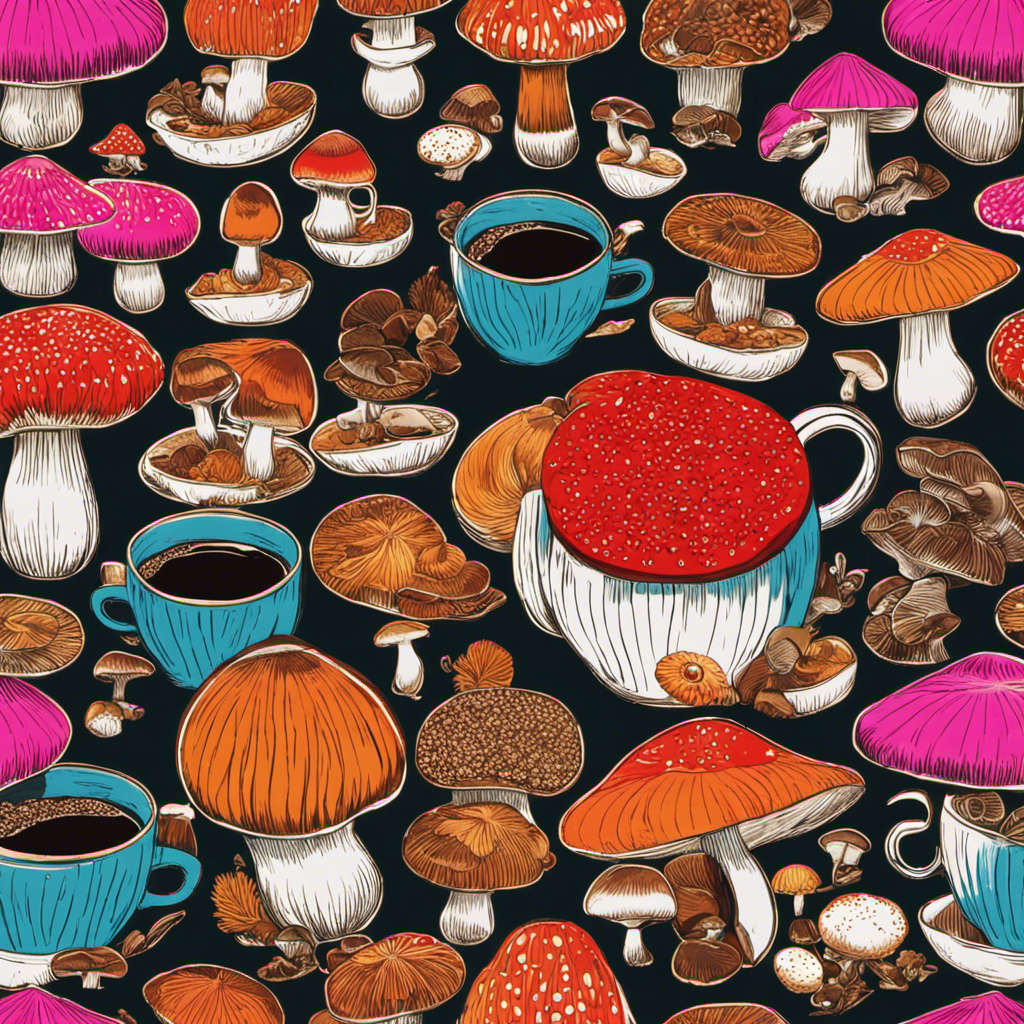
 Mushroom Coffee24 hours ago
Mushroom Coffee24 hours agoYour Ultimate Guide to Ryze Mushroom Coffee: 9 Things to Know
-
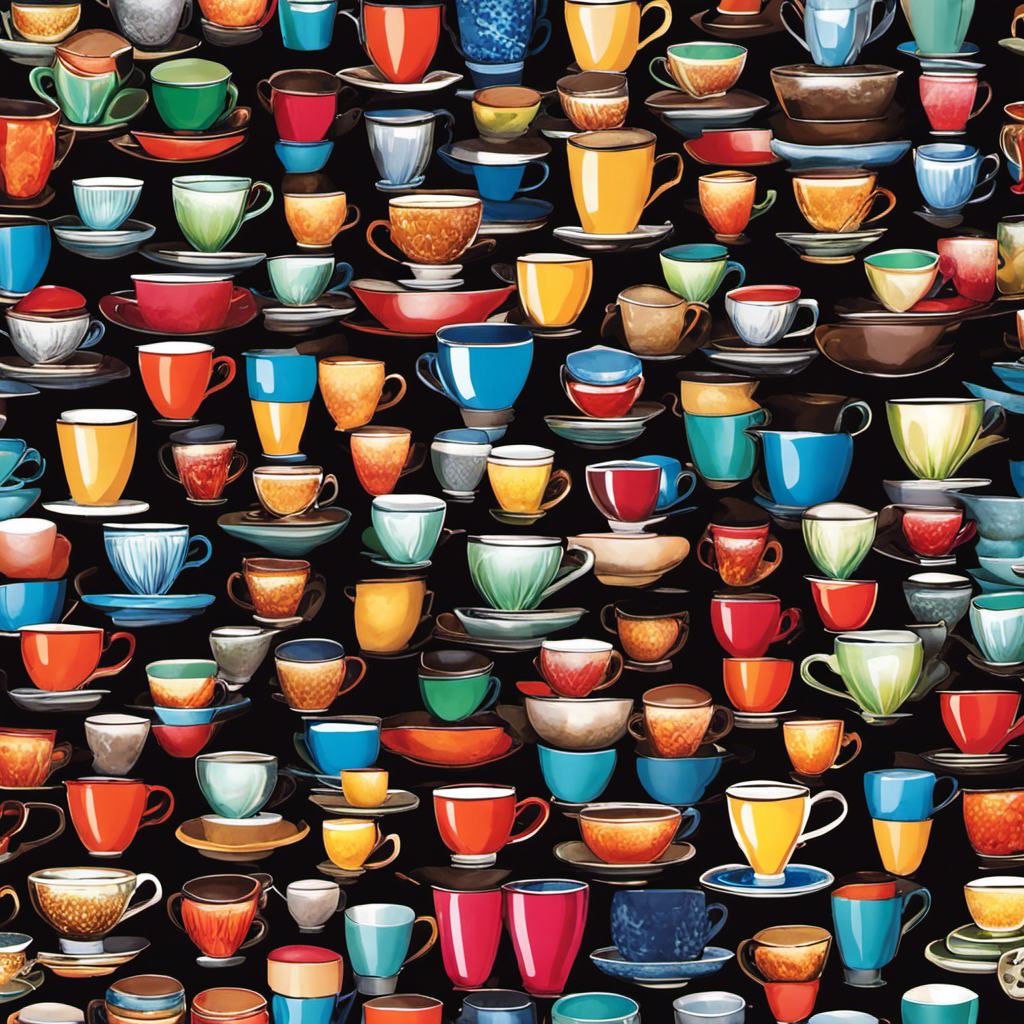
 Mushroom Coffee14 mins ago
Mushroom Coffee14 mins agoUnveiling the Puzzle: Top 10 Alternatives to Ryze Mushroom Coffee Revealed
-
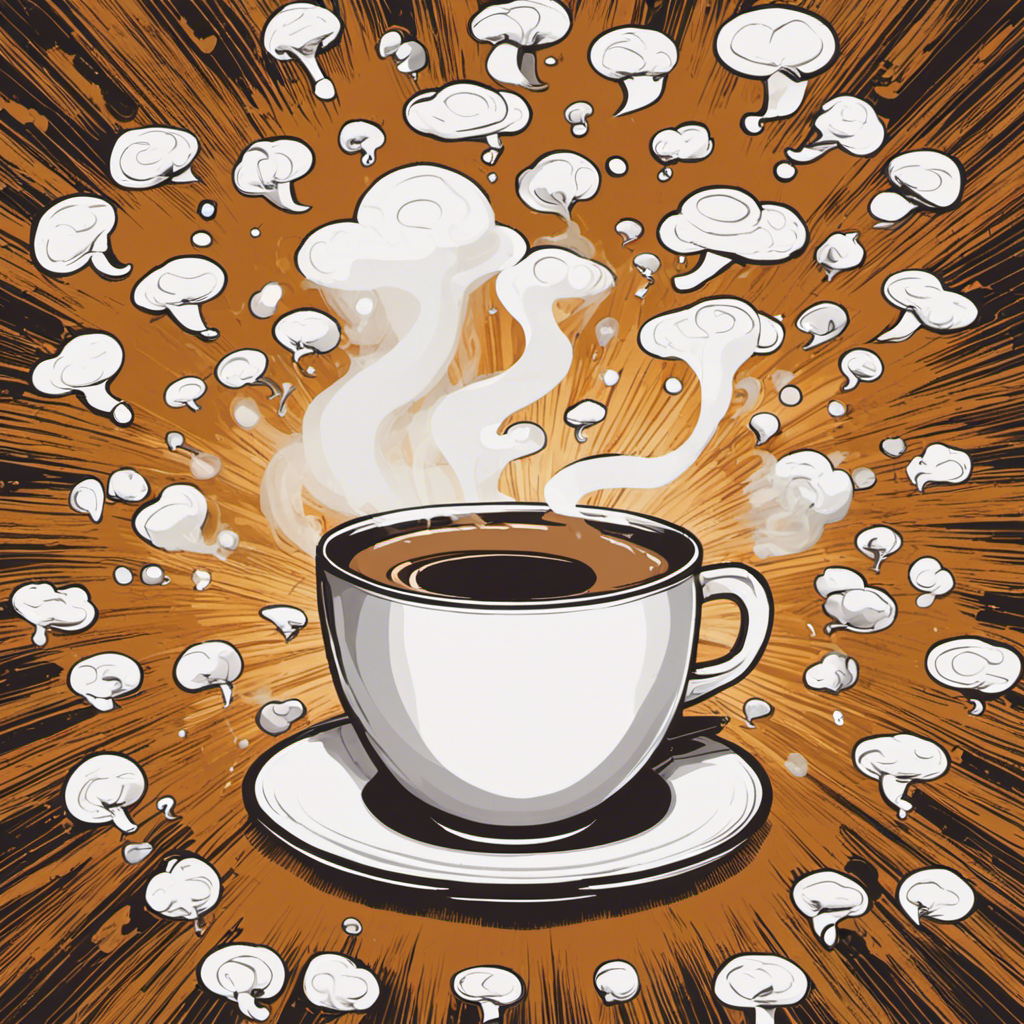
 Mushroom Coffee27 mins ago
Mushroom Coffee27 mins agoUnveiling the Mysteries of Ryze Mushroom Coffee: Top 10 Questions Answered
-
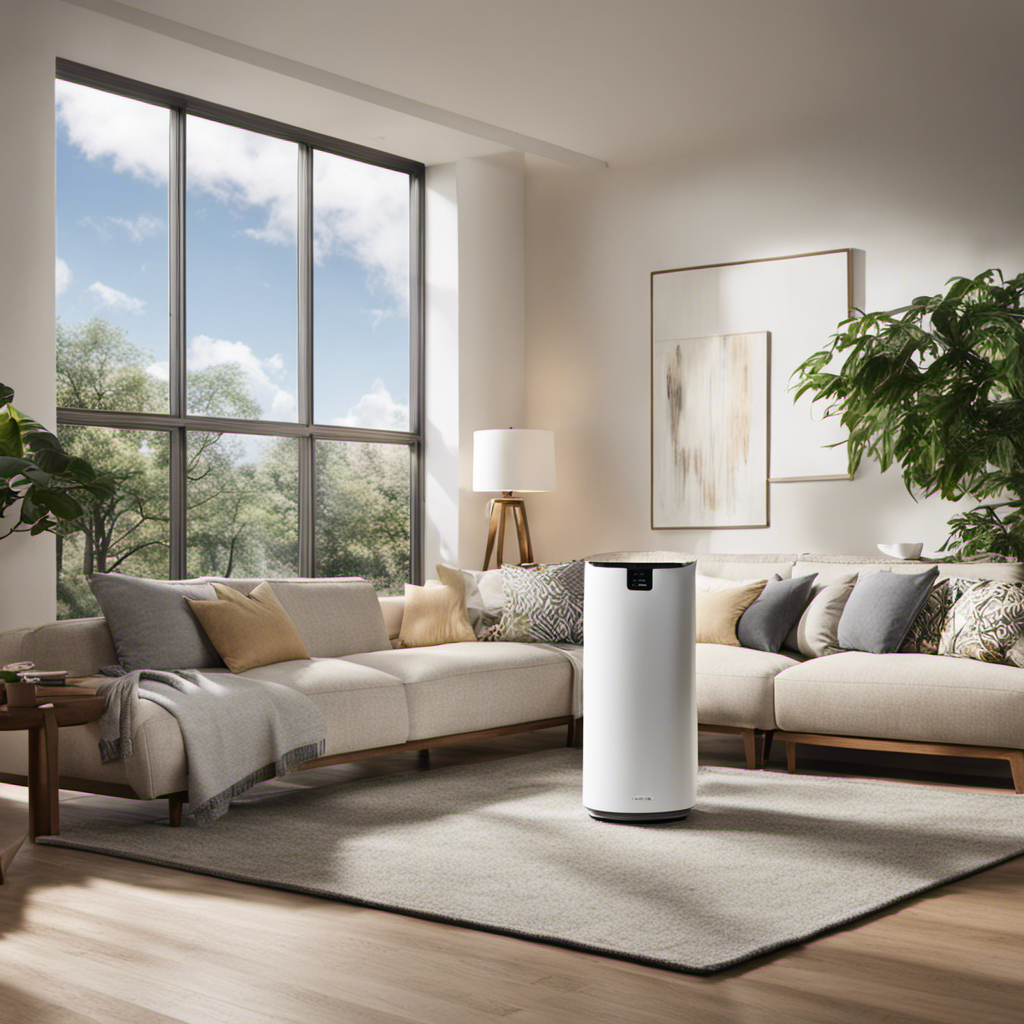
 Cappuccino Oracle Selected Reviews3 weeks ago
Cappuccino Oracle Selected Reviews3 weeks agoPuroAir HEPA 14 Air Purifier Review
-

 Cappuccino Oracle Selected Reviews3 weeks ago
Cappuccino Oracle Selected Reviews3 weeks agoArctic Air Pure Chill 2.0 Review: Cool and Portable
-
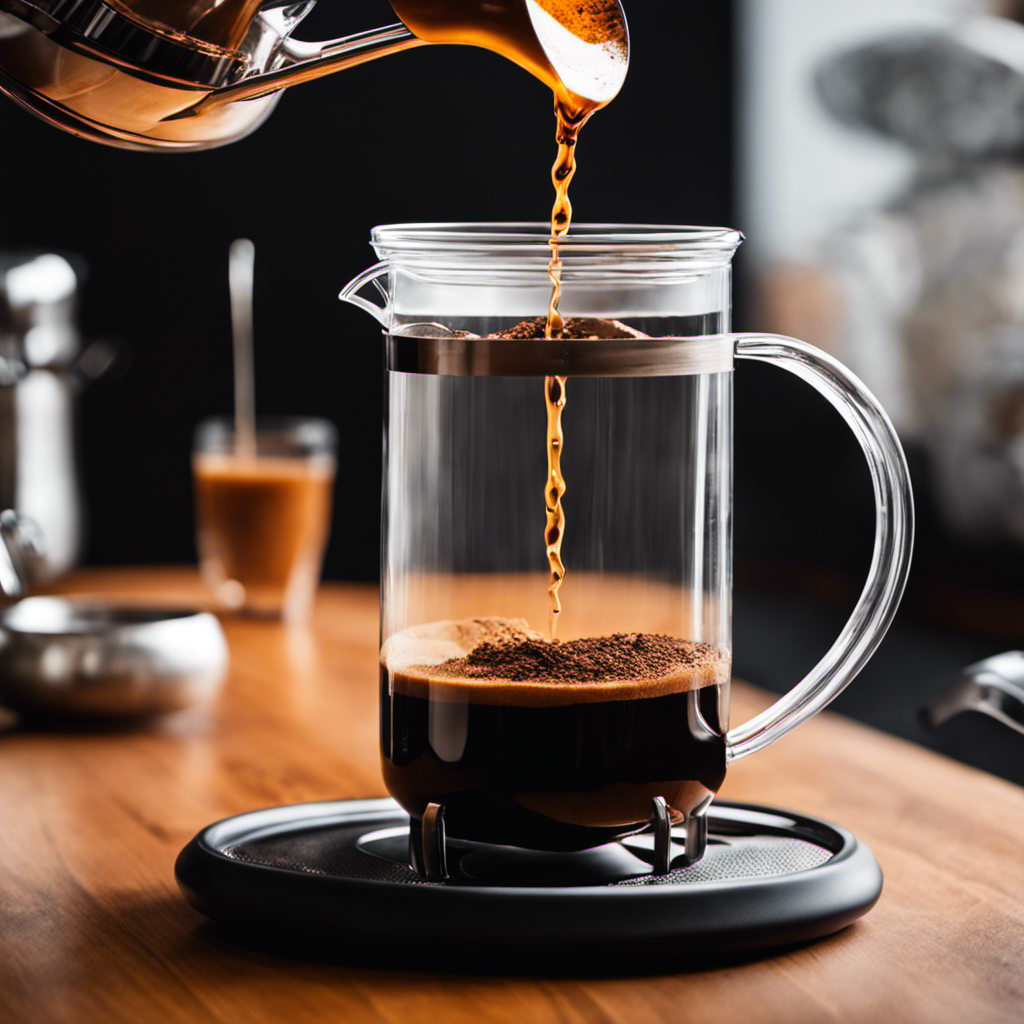
 Mushroom Coffee21 mins ago
Mushroom Coffee21 mins ago3 Best Techniques to Brew Ryze Mushroom Coffee
-
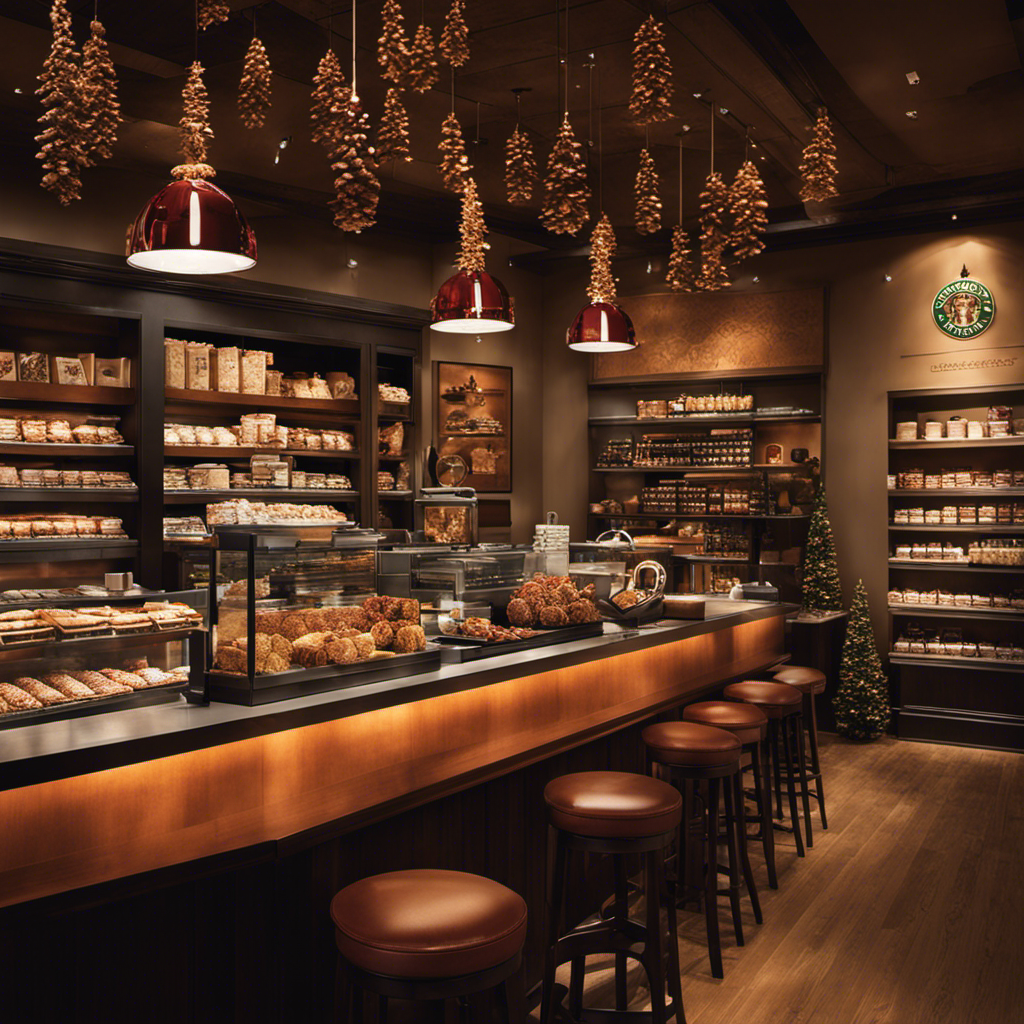
 Coffee Basics4 days ago
Coffee Basics4 days agoHow Do Starbucks’ Seasonal Specialties Appeal to Customers?
-

 Cappuccino Oracle Selected Reviews3 weeks ago
Cappuccino Oracle Selected Reviews3 weeks agoNineSky Dehumidifier Review: A Game-Changer for Comfort






